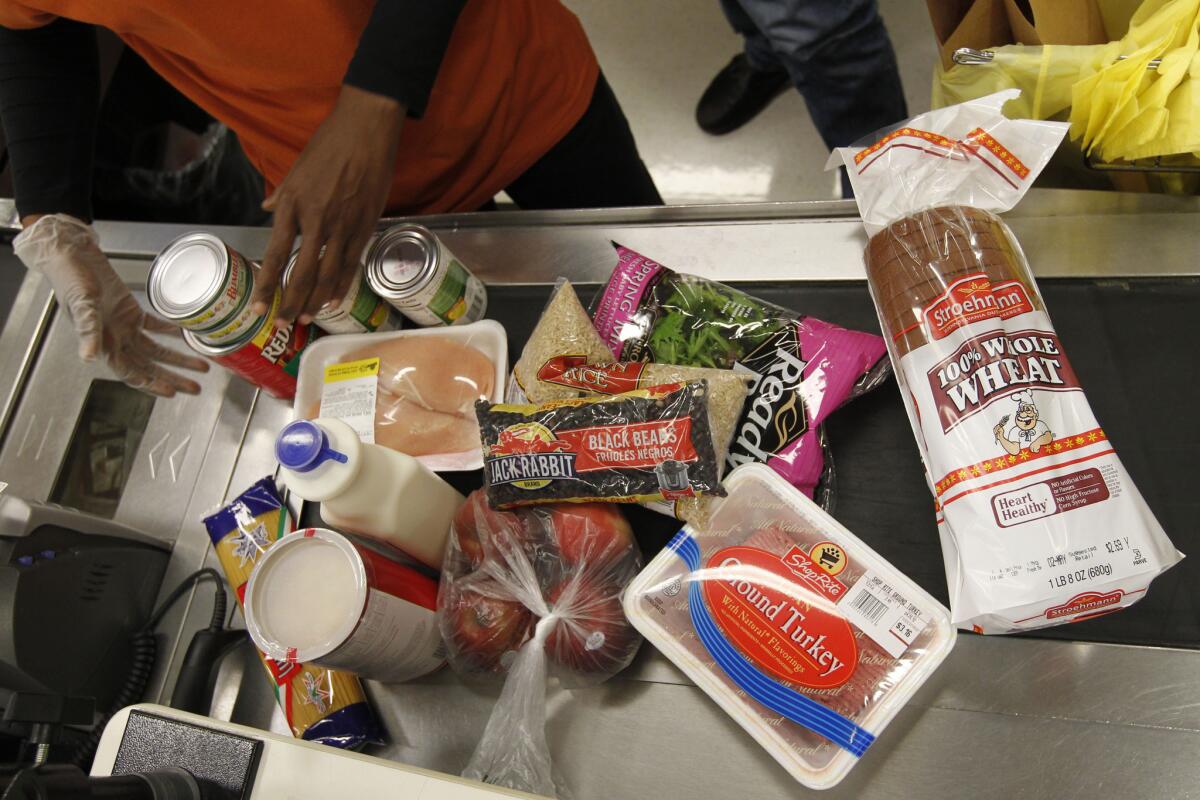Stop playing politics with hunger

One of the biggest pieces of business Congress has yet to resolve is the farm bill, legislation that has enjoyed bipartisan support for decades. Unfortunately, the process to reauthorize this crucial bill has taken a sharp and disheartening turn this year. The Senate and the House are in a standoff over extremely different versions of it with a deadline looming this month.
At stake is the ability of millions of Americans who still struggle in our economy to provide adequate and healthy meals for their children and families. In an unprecedented move, the House stripped the Supplemental Nutrition Assistance Program, or SNAP (formerly known as food stamps), from the bill with an intention to pass a separate nutrition bill, one with significant cuts to programs that fight hunger.
There have always been disagreements between our parties over the farm bill, but for decades we have reached across the aisle to tackle the concerns on both sides. We proudly count ourselves among a series of bipartisan teams of legislators who worked past those differences to address hunger through provisions in the farm bill.
We are a country with ample resources, especially the plentiful supply of food produced by our farms. As Americans, we have always used this abundance to help those who are hungry, both here and abroad. For generations, the United States has welcomed new Americans escaping famine and hunger in their homelands.
All of us benefit from the efficiency of our farmers and ranchers. We enjoy a safe and plentiful food system for less than 10% of our disposable income. In fact, Americans spend a smaller percentage of our disposable income on food than people in any other country. As a nation blessed with a bounty of food, we are a nation with a duty to fight hunger.
The special relationship in the legislative process between agriculture and those who need assistance from the SNAP program is also built on this tradition. In the modern era, funding for this vital program has been extended as part of the farm bill with relatively little partisan bickering — until now. By stripping the nutrition title from the legislation this year, the House has severed the vital tie that helps connect our food system with those who struggle with hunger in our own backyard.
Over time, we have worked hard to improve the program’s efficiency and effectiveness. In 2011, SNAP lifted 47 million people out of poverty, and 72% of its participants were families with children. The error rate — the combined rate for underpayments and overpayments — has been on a steady decline since the 1990s. And a 2008 Moody’s Analytics study shows that every $1 spent to help reduce hunger has resulted in $1.70 in economic activity.
Tackling our nation’s hunger issues has always resulted in a win-win situation for farmers, low-income families and our economy. The latest proposal from the House is an about-face on our progress fighting hunger. It would eliminate food assistance for 4 million to 6 million Americans.
If Congress lets this bill fall victim to the misguided and detrimental partisan politics we face today, the results for families and children challenged with hunger will be severe. In a country struggling to emerge from the worst economic recession since the Depression, this is no time to play politics with hunger. As friends and colleagues, we hope that the House will do the right thing and follow the Senate’s lead in passing a farm bill with adequate funding for food assistance. Our nation’s future depends on it.
Bob Dole is a former Senate majority leader (R-Kan.) and was the 1996 Republican nominee for president. Tom Daschle is a former Senate majority leader (D-S.D.) and is a distinguished senior fellow at the Center for American Progress.
More to Read
A cure for the common opinion
Get thought-provoking perspectives with our weekly newsletter.
You may occasionally receive promotional content from the Los Angeles Times.










